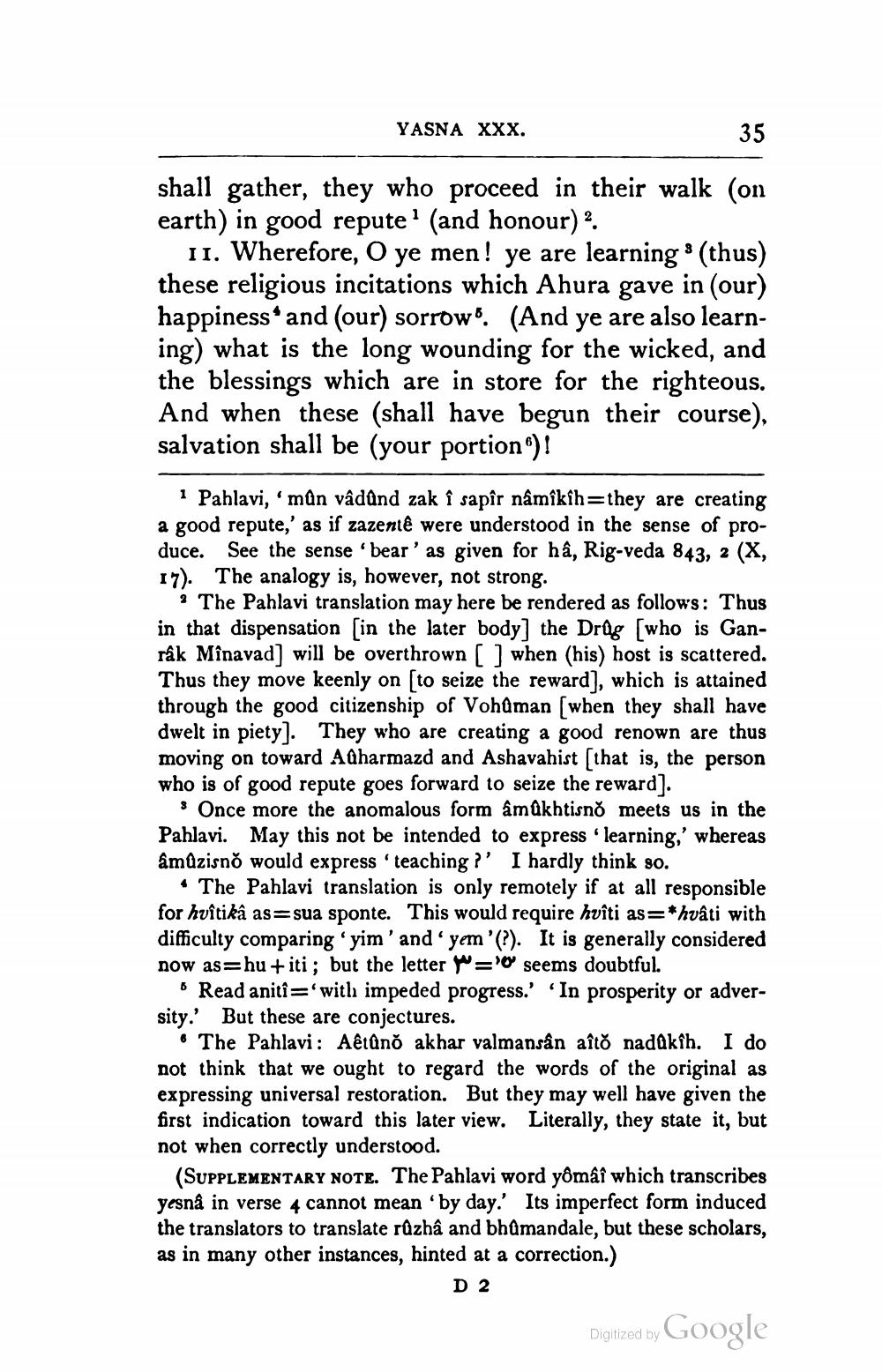________________
YASNA xxx.
shall gather, they who proceed in their walk (on earth) in good repute' (and honour) 2.
11. Wherefore, O ye men! ye are learning (thus) these religious incitations which Ahura gave in (our) happiness and (our) sorrow. (And ye are also learning) what is the long wounding for the wicked, and the blessings which are in store for the righteous. And when these (shall have begun their course), salvation shall be (your portion")!
1 Pahlavi, mûn vâdund zak i sapîr nâmîkîh=they are creating a good repute,' as if zazentê were understood in the sense of produce. See the sense 'bear' as given for hâ, Rig-veda 843, 2 (X, 17). The analogy is, however, not strong.
· The Pahlavi translation may here be rendered as follows: Thus in that dispensation in the later body] the Drug (who is Ganrâk Mînavad) will be overthrown [ ] when (his) host is scattered. Thus they move keenly on [to seize the reward], which is attained through the good citizenship of Vohuman (when they shall have dwelt in piety). They who are creating a good renown are thus moving on toward Adharmazd and Ashavahist (that is, the person who is of good repute goes forward to seize the reward].
s Once more the anomalous form âmûkhtisno meets us in the Pahlavi. May this not be intended to express learning,' whereas amûzisno would express 'teaching ?' I hardly think so.
The Pahlavi translation is only remotely if at all responsible for hvîtika as=sua sponte. This would require hvíti as=*hvâti with difficulty comparing yim' and 'yem'?). It is generally considered now as=hu + iti; but the letter w="O seems doubtful.
Read anitî='with impeded progress.' 'In prosperity or adversity.' But these are conjectures.
& The Pahlavi: Aêtûnõ akhar valmansân aîtó nadakih. I do not think that we ought to regard the words of the original as expressing universal restoration. But they may well have given the first indication toward this later view. Literally, they state it, but not when correctly understood.
(SUPPLEMENTARY NOTE. The Pahlavi word yômâî which transcribes yesnå in verse 4 cannot mean by day. Its imperfect form induced the translators to translate rûzhâ and bhümandale, but these scholars, as in many other instances, hinted at a correction.)
D 2
Digitized by
Digitized by Google




